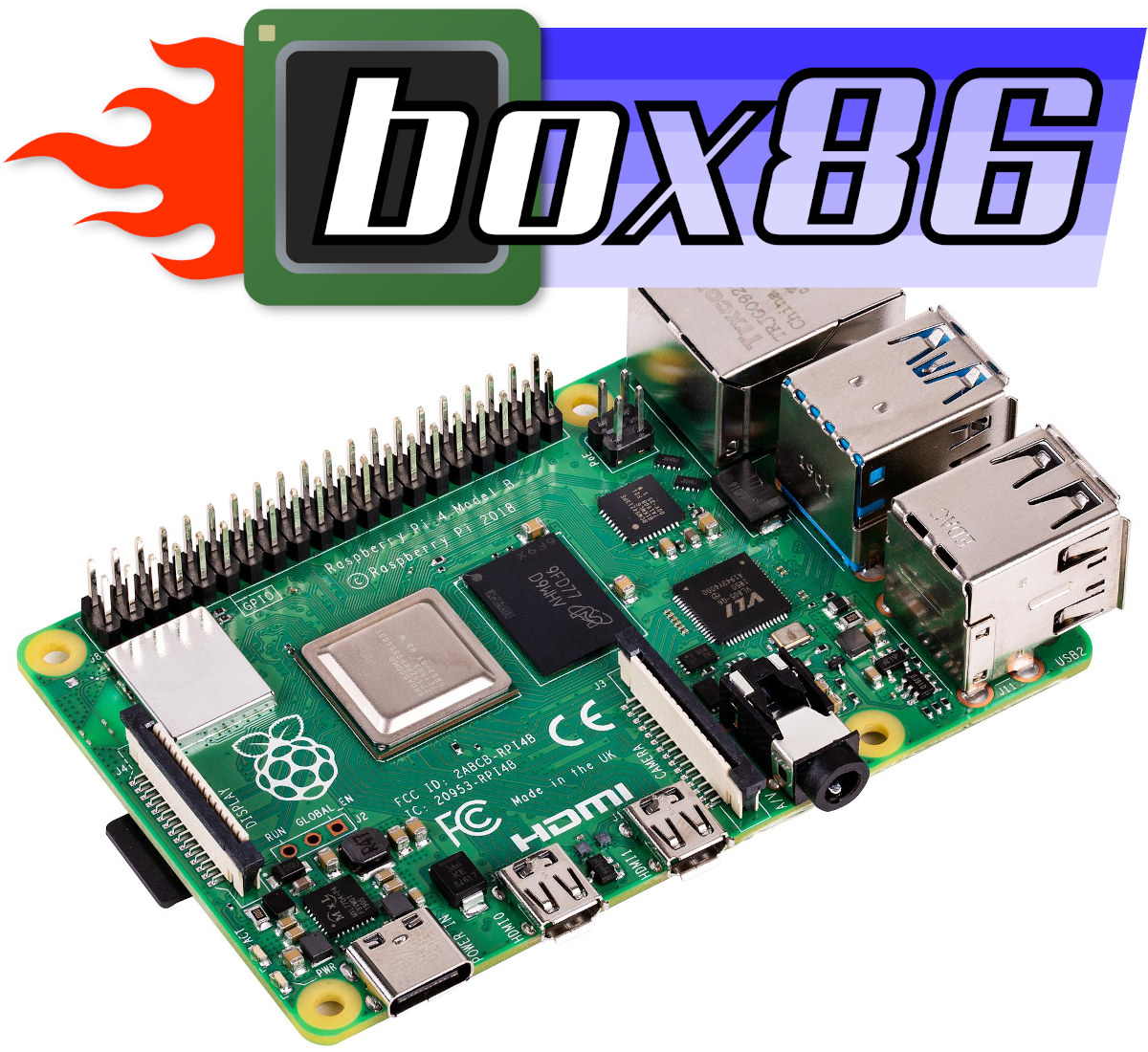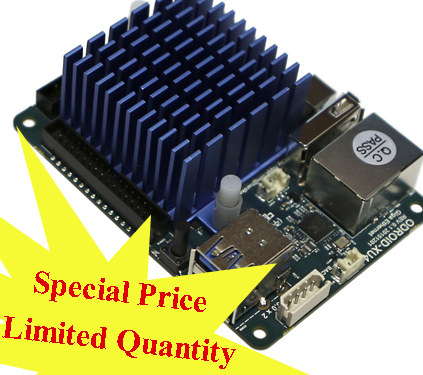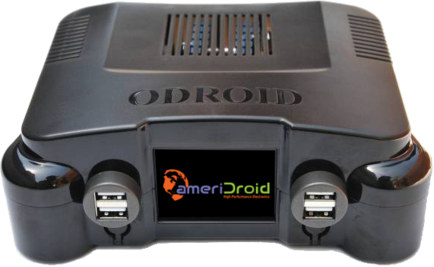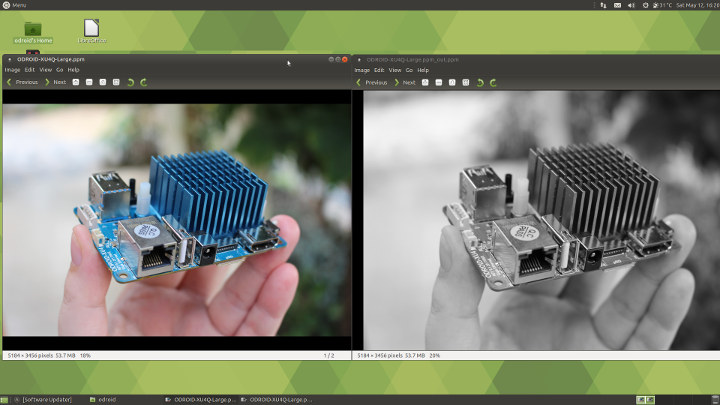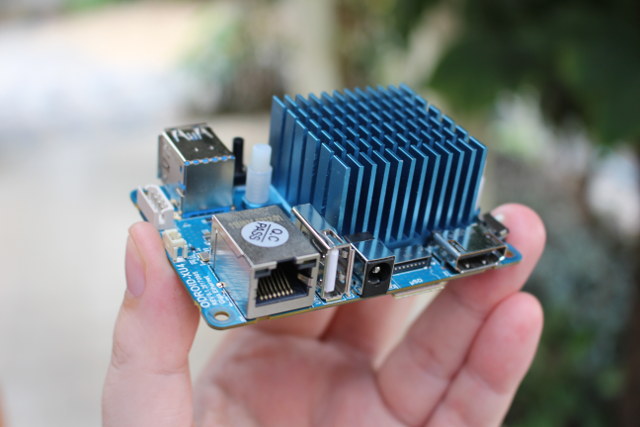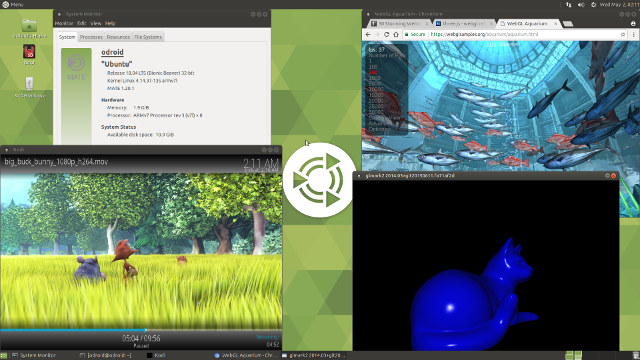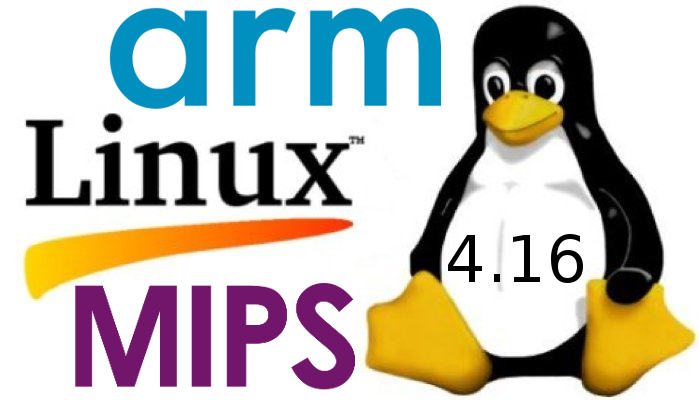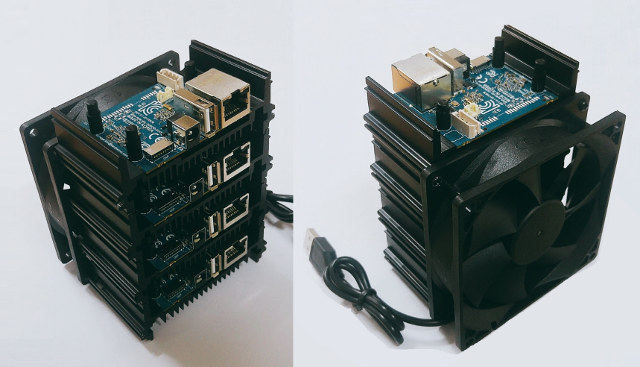Last week, we wrote about Raspberry Pi 4 Vulkan project status and future plans, and one person commented they are currently trying to get dxvk to work Box86, and that CNX Software should write about the latter. Cool, but what does that mean? dxvk is an open-source Vulkan-based implementation of D3D9, D3D10, and D3D11 for Linux, and Box86 is a Linux userspace x86 emulator that works on 32-bit Arm targets like the Raspberry Pi SBC. Nice, and I remember I ran x86 Linux and Windows on Raspberry Pi a few years ago using a closed-source commercial program called Exagear, but having an open-source solution is even better. That means 64-bit Arm is not supported at all, and Box86 can not even be built for Aarch64 targets. Since many x86 games require OpenGL, as opposed to OpenGL ES, Box86 works best in conjunction with gl4es. By installing Box86 on Raspberry Pi […]
ODROID-XU4 and ODROID-XU4Q Boards Going for $49 (Promo)
ODROID-XU4, and its fanless ODROID-XU4Q sibling, are neat little single board computer packing lots of power into a small form factor. I tested ODROID-XU4 with Ubuntu 18.04 recently and was relatively impressed by how well it worked considering it’s an Arm platform, as there were still admittedly some limitations. But as they say at $59 a board you can’t beat the price. Except you can actually do, as Hardkernel is offering both ODROID-XU4Q and ODROID-XU4 for just $49 during Black Friday here and there. If you’ve already forgotten about the board it is equipped with a Samsung Exynos 5422 octa-core Cortex A15/A7 processor, 2GB RAM, eMMC module support, Gigabit Ethernet, USB 3.0, HDMI 1.4, and more. You can read the full specifications here. The only difference between ODROID-XU4 and ODROID-XU4Q is the latter comes with a large heatsink, while the former is cooled by fan. If you are currently shopping […]
XU4Q Retro Gaming System Runs ODROID GameStation Turbo, Sells for $150 and Up
One of the use case for little Arm Linux boards is retro gaming thanks to open source projects like RetroPie, RetrOrangePi, Lakka, and others. To get a complete & usable system, it’s possible to purchase console kits, enclosures, or even complete game consoles running one of such emulators. This morning I’ve come accross another option, as Ameridroid is now taking pre-order for XU4Q Retro Gaming System for $149.95 and up. As it name implies, the console is based on ODROID-XU4Q, the fanless version of ODROID-XU4 board, which with its Exynos 5422 octa-core processor and 2GB RAM will be much more powerful than Raspberry Pi 3 boards, and most other boards on the market. The kit also includes OGST Gaming Console, GameSir G3w analog joystick controller, a power supply, and a 16GB microSD boot media flashed with ODROID Game Station Turbo based on Debian. If you already own an ODROID-XU4(Q) board, […]
How to Get Started with OpenCL on ODROID-XU4 Board (with Arm Mali-T628MP6 GPU)
Last week, I reviewed Ubuntu 18.04 on ODROID-XU4 board testing most of the advertised features. However I skipped on the features listed in the Changelog: GPU hardware acceleration via OpenGL ES 3.1 and OpenCL 1.2 drivers for Mali T628MP6 GPU While I tested OpenGL ES with tools like glmark2-es2 and es2gears, as well as WebGL demos in Chromium, I did not test OpenCL, since I’m not that familiar with it, except it’s used for GPGPU (General Purpose GPU) to accelerate tasks like image/audio processing. That was a good excuse to learn a bit more, try it out on the board, and write a short guide to get started with OpenGL on hardware with Arm Mali GPU. The purpose of this tutorial is to show how to run an OpenCL sample, and OpenCL utility, and I won’t go into the nitty gritty of OpenCL code. If you want to learn more […]
Review of Ubuntu 18.04 on ODROID-XU4Q Development Board
Hardkernel released their first Samsung Exynos 5422 octa-core board in July 2014 with ODROID-XU3, which at the time was really a powerful board, but also pricey at $179. Later that year, the company released a cheaper version ($99) called ODROID-XU3 Lite, which I had the chance to review with Ubuntu 14.04 and Android 4.4. The company’s adventure with Exynos 5422 processor did not stop there, as in 2015 they released the smaller and even cheaper ($74) ODROID-XU4 board, and last year launched a fanless version of the board with ODROID-XU4Q featuring a large heatsink. More recently, the company also introduced ODROID-HC1 and ODROID-MC1 solutions for respectively network storage and clusters applications. That’s the short history of Hardkernel Exynos 5422 boards as I remember it, and that means that since 2014, or nearly 4 years so far, the company has kept updating Ubuntu and Android firmware for their board, including the […]
Hardkernel & Libre Computer Release Ubuntu 18.04 Images for ODROID-XU4/3 & AML-S905X-CC Boards
Ubuntu 18.04 “Bionic Beaver” LTS operating system was released just last week, and at least two Arm board companies have independently released Ubuntu 18.04 images for their boards. First, Hardkernel has released an Ubuntu 18.04 MATE image for their Exynos 5422 powered ODROID-XU4(Q), ODROID-XU3 (Lite), ODROID-HC1, and ODROID-MC1 boards/kits. The ODROID Ubuntu image comes with the following key features: Linux 4.14.37 LTS GPU hardware acceleration via OpenGL ES 3.1 and OpenCL 1.2 drivers for Mali T628MP6 GPU FFMPEG/ffplay with hardware accelerated H.264 decoder X11 armsoc display driver with 2D acceleration GPU accelerated Chromium browser (WebGL contents and YouTube 720p plays well) Kodi 17.6 can play H.264 1080p/60fps BigBuckBunny sample video. (Note: no h.265, no 4K in Exynos-5422 processor) WiringPi and other GPIO/SPI/I2C/ADC/I2S tinkering libraries are available. KVM & Docker More stable and performant USB 3.0 and Gbit Ethernet drivers The company sent me a kit based on ODROID-XU4Q board to […]
Linux 4.16 Release – Main Changes, Arm and MIPS Architectures
Linus Torvalds has just released Linux 4.16: So the take from final week of the 4.16 release looks a lot like rc7, in that about half of it is networking. If it wasn’t for that, it would all be very small and calm. We had a number of fixes and cleanups elsewhere, but none of it made me go “uhhuh, better let this soak for another week”. And davem didn’t think the networking was a reason to delay the release, so I’m not. End result: 4.16 is out, and the merge window for 4.17 is open and I’ll start doing pull requests tomorrow. Outside of networking, most of the last week was various arch fixlets (powerpc, arm, x86, arm64), some driver fixes (mainly scsi and rdma) and misc other noise (documentation, vm, perf). The appended shortlog gives an overview of the details (again, this is only the small stuff in […]
ODROID-MC1 Quad Board Cluster Launched for $220
Hardkernel teased us with ODROID HC1 Home Cloud server, and ODROID MC1 cluster last August with both solutions based on a cost down version of ODROID-XU4 board powered by Samsung Exynos 5422 octa-core Cortex-A15/A7 processor. ODROID-HC1 Home Cloud server was launched shortly after in September for $49. It took a little longer than expected for the cluster to launch, but ODROID-MC1 (My Cluster One) is finally here with four ODROID-XU4S boards, and a metal case with a cooling fan. The solution is sold for 264,000 Wons in South Korea, and $220 to the rest of the world. ODROID-MC1 cluster specifications: Four ODROID-XU4S boards with SoC – Samsung Exynos 5422 quad core ARM Cortex-A15 @ 2.0GHz quad core ARM Cortex-A7 @ 1.4GHz with Mali-T628 MP6 GPU supporting OpenGL ES 3.0 / 2.0 / 1.1 and OpenCL 1.1 Full profile System Memory – 2GB LPDDR3 RAM PoP Network Connectivity – 10/100/1000Mbps Ethernet […]


